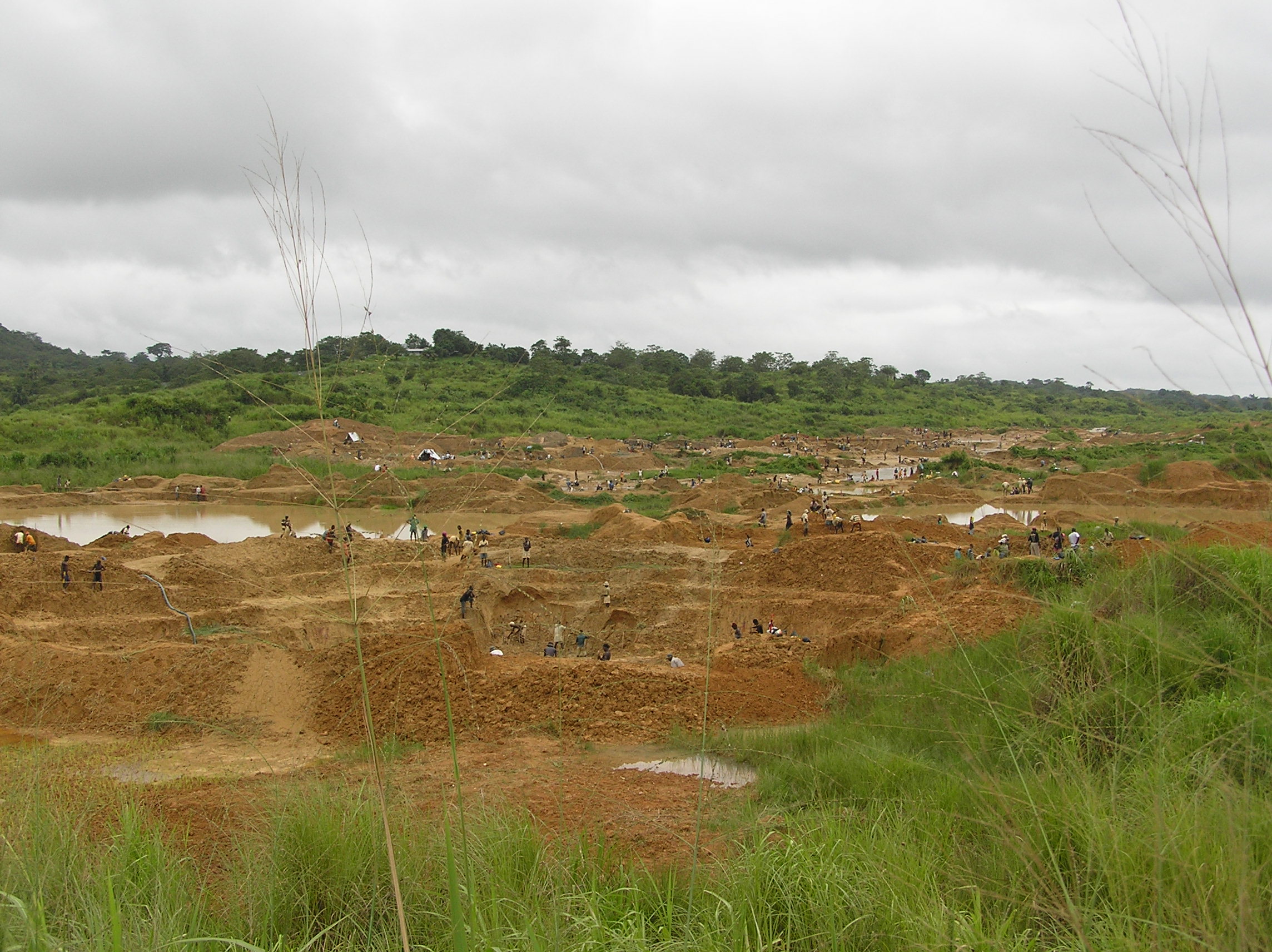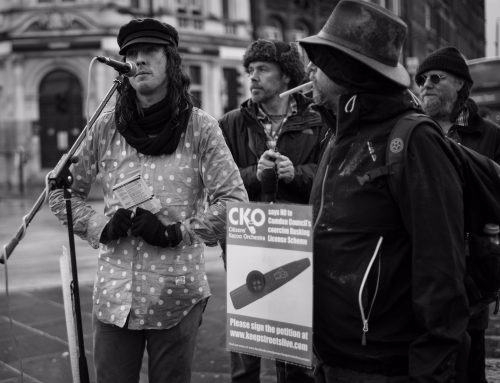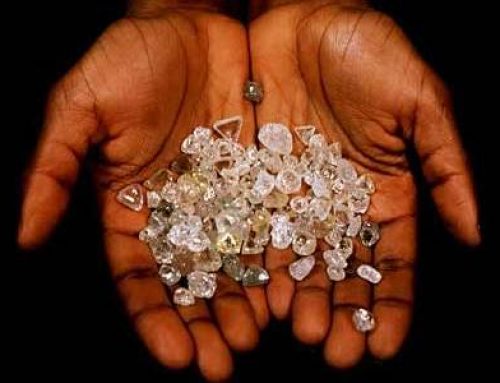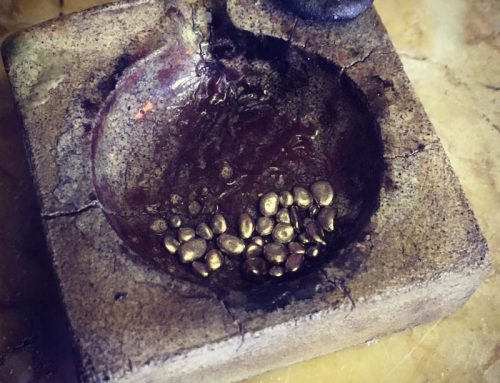Below is the statement (in italics) by Signet Groups CEO Virginia C. Drosos in response to Human Rights Watch (HRW) Hidden Cost of Jewellery report on the professions ethical and human rights performance. This response was published online via the Professional Jeweller on 20 February. I initially posted my comments to her rebuttal in the comments section of the Professional Jeweller website. PJ censored my comment by removing it. I invite everyone to read Virginia Drosos opinions and my comments in reply.
‘Jewellery, for me, like many customers, is all about a meaningful moment, about a relationship, about self-expression. At Signet Jewelers, we have the privilege of selling a product that inherently carries a strong emotional attachment and can be the conduit to a customer’s most memorable moments. It is also one of the key reasons that the responsible sourcing of the gold, diamonds and other precious metals and stones must be a priority for everyone along the global jewelry supply chain.
Signet believes that visibly leading in the area of responsible sourcing is essential for our success, and our industry’s growth. Customers want transparency. They respect integrity. They care about the story behind what they purchase. We must respect that, and work together to give it to them.
As part of our efforts to take the lead in ensuring the integrity of the global jewellery supply chain, Signet created the award-winning Signet Responsible Sourcing Protocols. Mandatory for all Signet suppliers, these Protocols incorporate best-in-class principles that ensure Signet is leading the continuous improvement in the integrity of the jewelry global supply chain with an emphasis on transparency and the protection of human rights.
Certified Responsible Jewellery Council (RJC) membership is also a requirement for all Signet jewellery suppliers. RJC membership reinforces Signet’s industry leadership position on responsible practices and requirements in the areas of human rights, health and safety, and labour practices throughout the global Signet supply chain.
Recently, Human Rights Watch (HRW), a non-profit organization, released a report on ‘The Hidden Cost of Jewellery’.
In the spirit of transparency and cooperation, Signet and other members of the jewelry industry engaged openly and extensively with HRW. Unfortunately, the report contains language chosen more to criticize our industry rather than provide constructive recommendations.
In particular, we believe HRW’s assessment of the RJC standards is incorrect. We would welcome HRW to engage more constructively with the RJC and other participants in the jewelry industry.
Unwavering product integrity is fundamental for Signet – and we believe it should be for the entire industry. Going forward, Signet urges everyone with a stake in our industry to join us in this diligent pursuit of excellence and transparency’.
The jewellery profession – especially the luxury brands and big corporates like Signet are long overdue objective criticism – HRW have served the consumers of jewellery very well in calling out the lack of transparency, traceability and ethical performance in this profession.
The HRW report is precisely what the jewellery profession needs at the moment. Responsible sourcing begins as a bare minimum with traceability and transparency. Without these basic minimums there can be no serious ethical performance discussion. To put the dilemma facing Signet and every other luxury brand retailing diamonds, platinum, gold etc. into its purest terms, if the sales assistant on the shop floor cannot inform the customer which hole in the ground the materials came from, no ethical claim can hold water.
Whilst I appreciate the need for Virginia Drosos to adhere to the age old narrative of ‘jewellery as a symbol for special occasions’, the veracity of the sources, and the associated human rights issues, conflicts, and other abuses that effect the vast majority of the jewellery supply chain must no longer be covered up by luxury jewellery brands. If the CEO of Signet is serious about her rhetoric she and others like her will come out from behind the coat tails of RJC and recognise the true challenge facing jewellers. Certifying against legal compliance through an industry establishment body like RJC is not progress. Using RJC membership (a very low self preferential standard) as a precursor to supplying Signet, thereby proving ethical performance for Signet, proves very little as the RJC chain of custody standard is voluntary.

Democratic Republic of Congo artisan gold miners. This gold gets smuggled to Dubai refineries, onto India and China and made into jewellery.
A corporate jeweller, having its own internal code of conduct although a welcome step back in the 20th century, will lack serious credibility if it does not submit its supply chain credentials to rigorous independent verification. Signet and others need to enter into the 21st century and are quite justifiable being criticised for living in the past. HRW are right to call-out the jewellery profession for its consistent poor performance in supply chain ethics. My invitation to the CEO of Signet, if she is brave enough, is to come out from behind the corporate desk and I will take her to a mine where platitudes to maintain the illusion of jewellery’s perfection have no meaning. The jewellery profession as a whole needs to grow up and stop blaming everyone else for their poor ethical performance. I recall HRW, Global Witness, Amnesty International, Alliance for Responsible Mining, WWF Australia providing constructive recommendation that there be a genuine multi stakeholder governance structure at the launch of The Responsible Jewellery Council in 2005. Companies like Signet, Be Beers, Cartier, Tiffany, Rio Tinto all refused to open up on a governance level, a big mistake. The luxury brand ‘stock and trade’ when criticised is to deflect criticism by projecting their own collective criticism on the criticiser. This is the behaviour of the school playground, not the behaviour of seemingly well adjusted adults. Drosos accusations that HRW are not being constructive and overly critical is quite simply intellectually lame and historically inaccurate.
Finally I have one over arching criticism of Signet and it is not that they are doing nothing. As the HRW report demonstrated, Signet are doing an average job (as I characterised above, they have entered the 20th century on supply chain management). It is rather the fact that they are working to a ‘minimise corporate risk’ strategy, rather than a transformational agenda. Imagine if Signet used their power as the worlds largest jeweller, to make a meaningful difference on the ground. Adherence to politically expensive sourcing protocols such as the OECD Due Diligences, make for the appearance of responsibility, but as I have witnessed first hand, have very little meaning on the ground to the very poorest mining communities who could only ever dream of an educational level where they can read such complex documents, never mind understand and implement them. Supporting charities such as the Diamond Development Initiative, whilst laudable, does not demonstrate going beyond basic minimums for a company with a turnover in excess of $6 billion USD. I am not advocating Signet stop funding DDI, however I would like to see that funding targeted strategically to delivering economic sustainability through a fair trade diamond supply chain. Where are the DDI stones?
Virginia Drosos, like her peers in the jewellery profession are facing a Kairos moment. The foundations of the luxury jewellery narrative is crumbling around them and how they respond to the suffering, exploitation, ecological devastation and conflict that is so deeply entrenched in the extraction industries will define whether they have a future or not. All jewellers like Signet are in the extraction business and their customers deserve to know where the mines are before they buy their jewellery.





Leave A Comment
You must be logged in to post a comment.